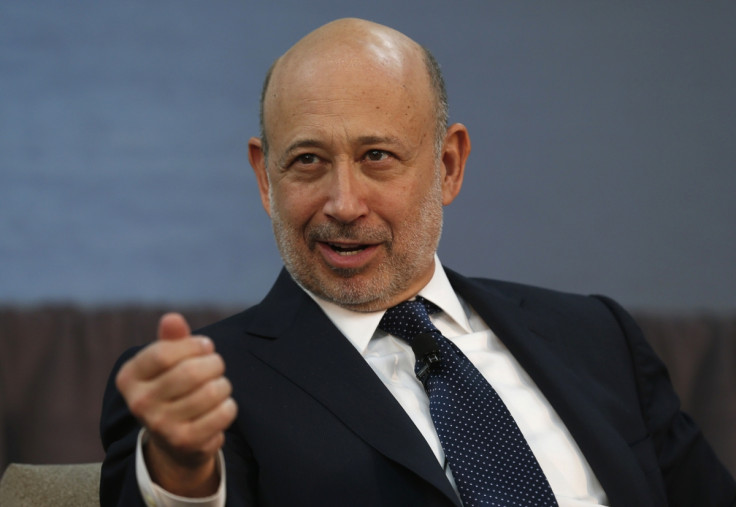Davos 2017: Goldman Sachs boss says if Trump is against free trade 'I'm at odds with him'
Goldman chief Lloyd Blankfein says a trade war between the US and China would lead to a smaller global pie.

The head of Goldman Sachs warned on today (19 January) that he would oppose the incoming US President Donald Trump if he sparked a trade war with China. "If he's anti-trade, then I'm at odds with him," said Lloyd Blankfein, the chief executive of the giant US investment bank.
President-elect Trump, who is sworn into office tomorrow (20 January), regularly criticises China for rigging its currency to make its exports cheaper.
During his presidential campaign Trump threatened to impose import tariffs as high as 45% on Chinese goods.
But earlier this week, China's President Xi Jinping said there were no winners in international trade wars. The Chinese leader was speaking at the World Economic Forum at the Swiss ski resort of Davos, which is hosting more than 3,000 participants, of which 1,200 are chief executives or company chairs and more than 50 are world leaders. The Goldman boss was present.
Blankfein, speaking on Bloomberg TV, added: "But what [Trump] is saying is also consistent with negotiating trade deals to make them fairer. Or more favourable to US interests. Just the way that every politician wants to pursue their national interests.
Smaller pie
"I don't find fault with that. That's not inconsistent with having free trade. I'll take that point of view now until I see otherwise. The US dollar has a point of view about how the Chinese currency should trade against the US dollar. The pushback that's happening now is the normal give and take between two statesmen with their national interests at stake."
Blankfein added: "The world would be poorer, and divide a smaller pie if there's not free trade."
However, Trump advisor Anthony Scaramucci, an ex-Goldman Sachs banker, said earlier in the week that if China chose to retaliate if the Trump administration imposed tariffs on imports, it would cost them "way more" than it would cost the US.
© Copyright IBTimes 2024. All rights reserved.






